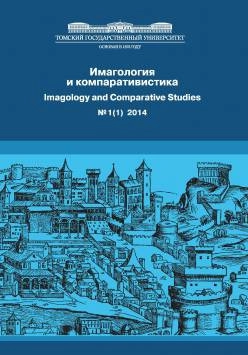Советские фильмы периода «оттепели», в которых показаны истории любви между гражданами СССР и США, сравниваются с аналогичными голливудскими картинами. Отмечается, что в кинематографе обеих стран эти истории служили оружием «культурной холодной войны». Они воспевали преимущества советского образа жизни, подчеркивали превосходство маскулинности «своих» и выступали одним из приемов символической демаскулинизации врага. Автор заявляет об отсутствии конфликта интересов.
The article deals with an analysis of the Soviet Thaw films that contain love stories of USSR and USA citizens. Hollywood released a number of films that told the stories of love between representatives of the two hostile blocs; following the canon established in Ninotchka, they served as a part of the “struggle for hearts and minds,”, as it is shown in many studies. Meanwhile the Soviet cinema also produced the movies that touched the theme of romances between Soviet and American characters: from Meeting on the Elbe (1949) to Lost in Siberia (1991). The author points out that Soviet love stories, like Hollywood ones, served as a weapon of the cultural Cold War. They constructed emigration beyond the Iron Curtain as unacceptable for Soviet citizens, emphasized the superiority of the masculinity of “us” and functioned as a means of a symbolic demasculinization of the enemy. At the same time, unlike American cinema, the Soviet one released movies that told how a woman of “us” married a man of “them.” However, the family couple chose the USSR as a place of their residence, and it was the woman who rehabilitated the American man, turning him into a Soviet person. Love stories served as a part of not only geopolitical but also gender discourse of the Cold War, maintaining and reshaping a certain gender order. Whereas Hollywood constructed the woman as a person who valued the private sphere higher than political beliefs or loyalty to the country, Soviet love stories showed that the woman actively participated in transforming the world, was interested in worldview and political issues, and was able not only to obey a man, but also to lead him. In the perestroika cinema, along with the changes in evaluations of the Soviet way of life, the narrative of love stories was deconstructed: Soviet people emigrated to their beloved ones in the West. The author declares no conflicts of interests.
Идентификаторы и классификаторы
- Префикс DOI
- 10.17223/24099554/21/13
- eLIBRARY ID
- 67975927

















